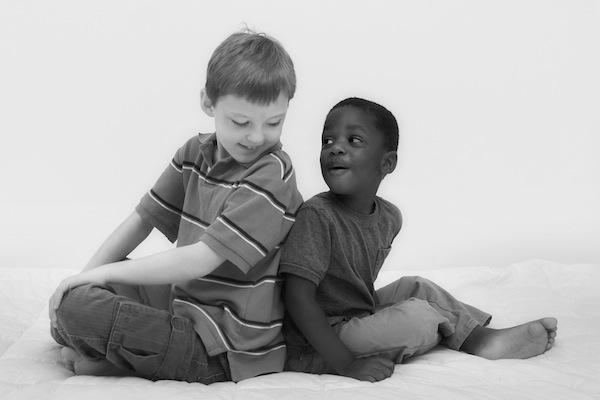
Though openness and communication is important in any parenting situation, it applies even more so when involving adopted children. According to family psychologist John Grienenberger, as with any situation with adoptive children, being candid and forthcoming when discussing adoption is extremely important. Talking about, even celebrating, the fact that a child is adopted normalizes the differences. This helps validate adopted children’s feelings of being different, which makes them unafraid and unashamed to acknowledge it. Being open and frank about adoption allows biological and adoptive siblings to bond without any underlying discomfort.
Because the conversation is often about the adopted child, often the biological siblings are the ones neglected or excluded. As adoption educator Beth Hall points out, with focus on the non-biological child, biological children may feel left out even though the addition of a new family member affects them as well. Such feelings can manifest in to exclusionary behavior or difficulty. When considering the need of the adopted child, it is important to include the entire family. Both kinds of children will need reassurance, just in different ways.
The adopted child is going to feel different. There is no way to avoid this. In many cases the adopted child will feel like an interloper among the biological children. Because of this, creating a common sense of identity will help bond biological and adopted siblings together. For example, being on the same team in a game or performing an activity together creates a bond of shared identity.
Pediatrician Lawrence Kagan points out that siblings, biological or otherwise, will behave differently to the same stimulus. Adoptive differences notwithstanding, in all cases siblings are just siblings and should be treated as such. This is not to say that there are no differences between siblings. Quite the opposite—different children will behave different ways, and thus must be given reasons to bond. Dr. Kagan encourages positively reinforcing sharing. If cooperative behavior is encouraged, adoptive and biological siblings may be more inclined to behave so more often. In any case, sibling rivalry will always be an issue. Creating an environment of healthy cooperative play will help them bond despite any differences.
Like all people, shared experiences bring siblings together. Adopted and biological siblings are no exception. Making sure every member of the family is included in open discussion can alleviate any growing resentful sentiments. It’s important to create a shared identity and encourage cooperation.











My friend is having this issue with her kids (one who is adopted) so I'll definitely share this information with her. Thanks!
I think these things will help with my biological children!
This is a great article and so very true! It can be really hard to feel connected sometimes but it is definitely possible for them to have a good relationship!
I was a foster kid and it helped me get along with the other kids by playing sports and games with them.